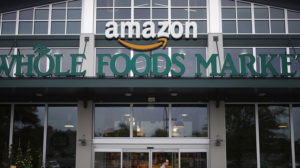For retailers, over-leveraged balance sheets, immense debt service obligations and a failure to adapt to changing consumer preferences are clearly far more significant than anything Amazon has done.
Debunking the Myth of the “Retail Apocalypse”


For retailers, over-leveraged balance sheets, immense debt service obligations and a failure to adapt to changing consumer preferences are clearly far more significant than anything Amazon has done.

The “retail apocalypse story” is false. The lesson from Christmas ‘17 is that Amazon is good for consumers, good for competition and, yes, good for traditional retailers. Leave it be.

The malleability of market boundaries and aggressive AI competition among online services should help rebut claims that not only Google, but Facebook and Amazon as well, are somehow illegal monopolies.

The hipster antitrust narrative about Internet “monopolies” runs headlong into the reality of fierce artificial intelligence competition among the largest tech companies in the emerging voice-controlled digital assistant space.

A five-decade consensus on the objectives of antitrust law is under threat today from the extraordinarily divisive politics of contemporary America. It took a long time and sordid episodes to get the politics out of antitrust—it would be a shame to go backwards and politicize competition policy again.

Former music and film producer Jonathan Taplin is way out of his element, merging two distinct issues into a superficial “#resistance” meme that contradicts the central tenets of U.S. antitrust law.

The first and best example of Internet disintermediation, Amazon.com, is quietly going a bit in the other direction.